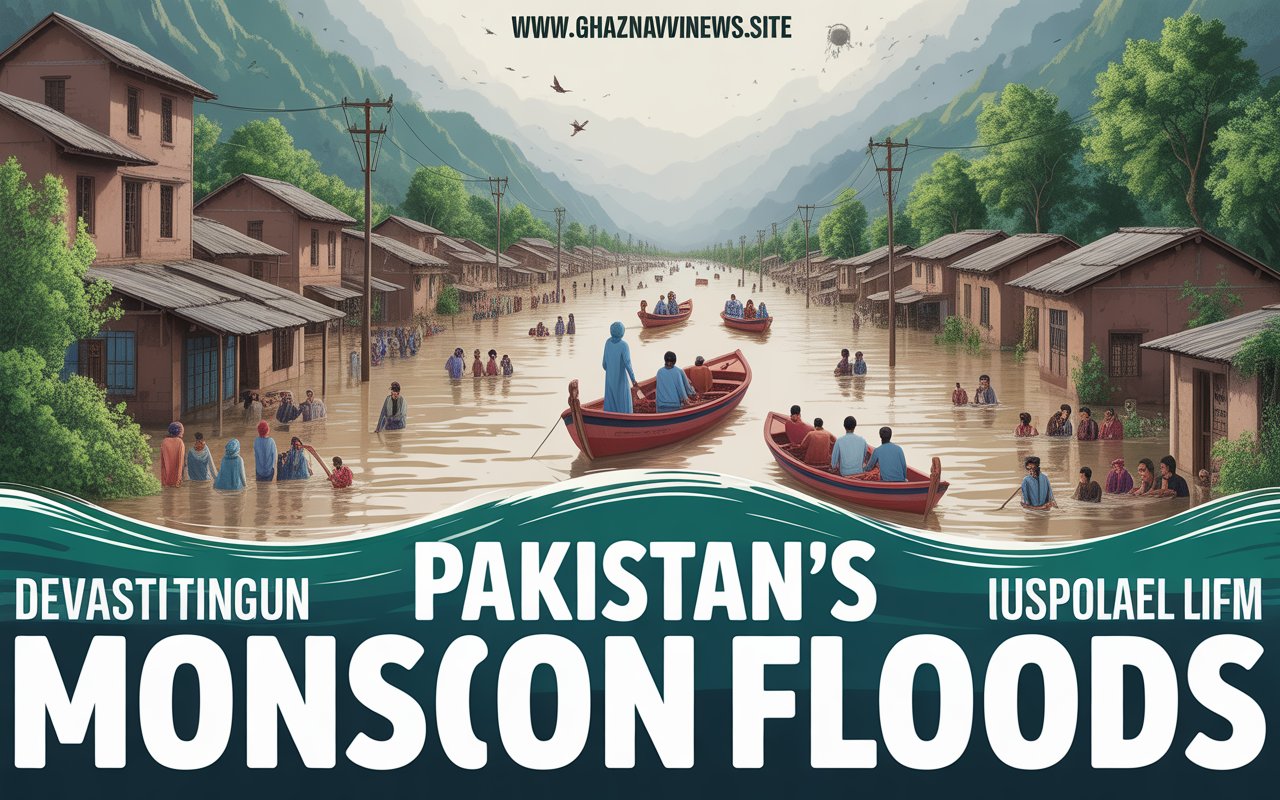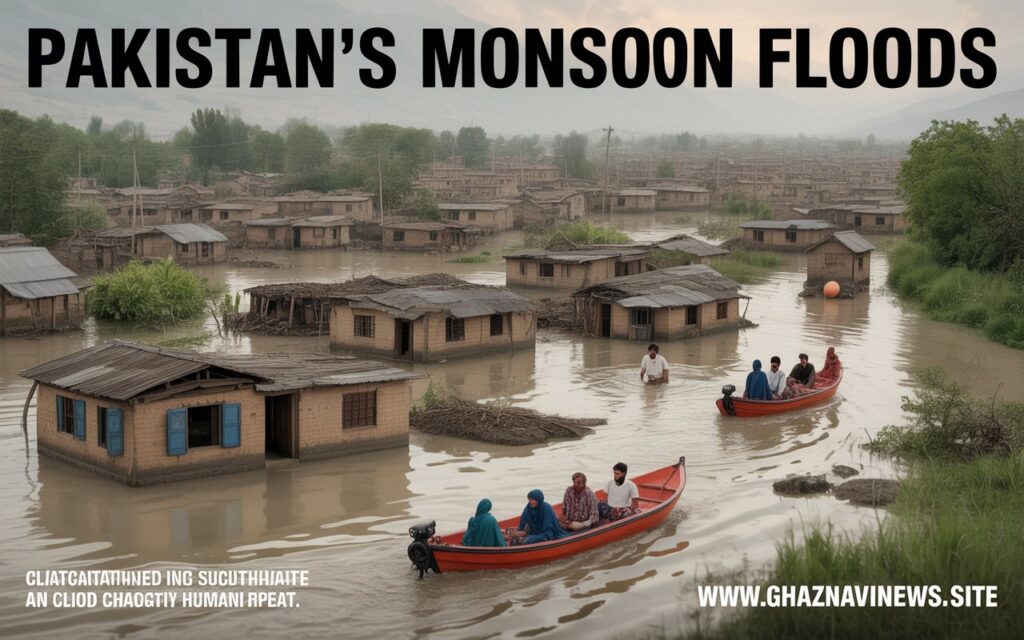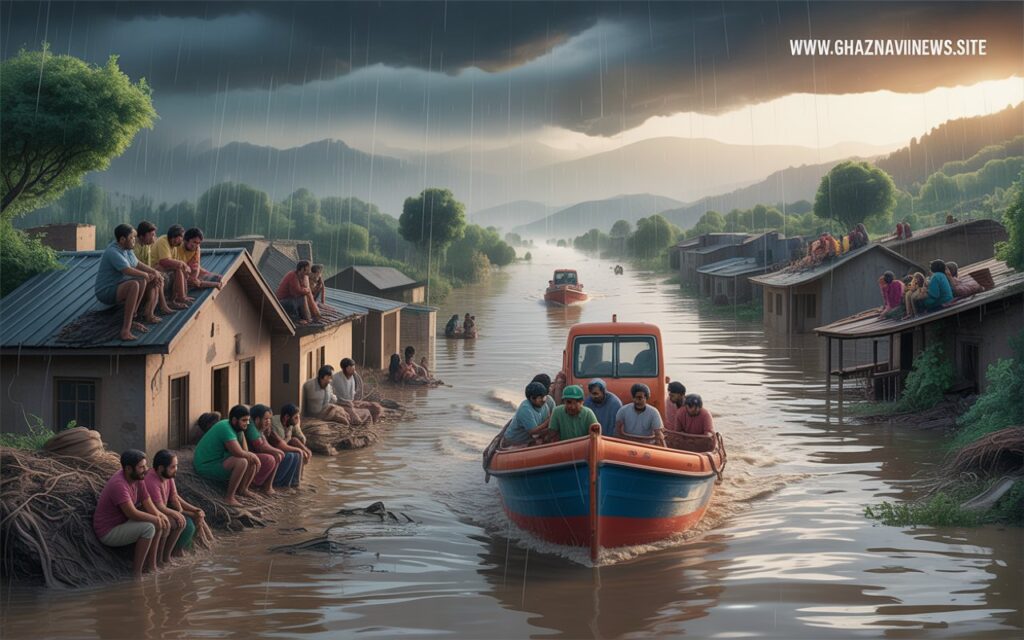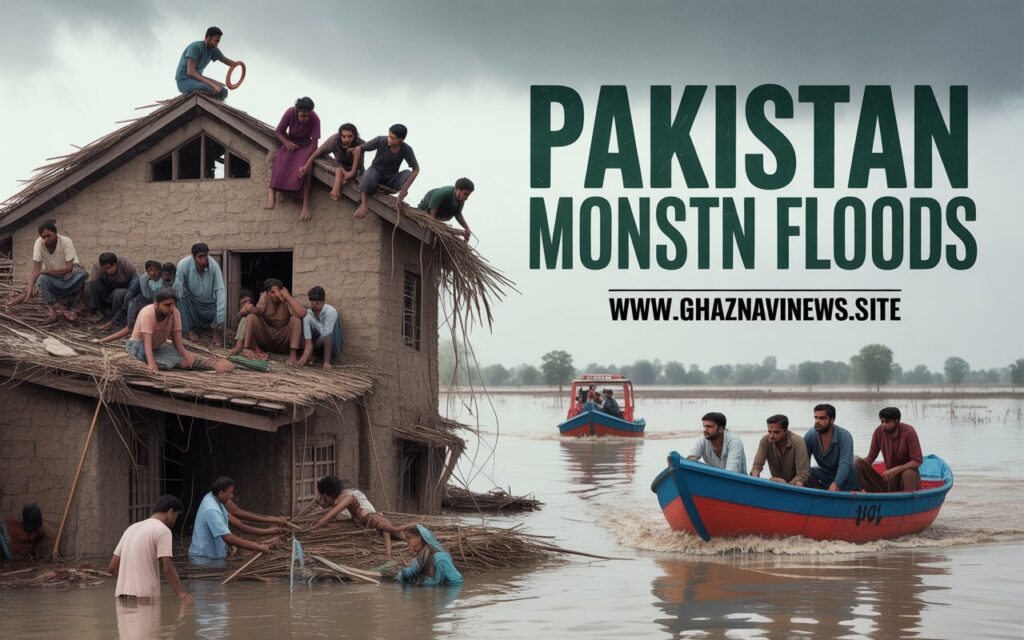
Vatican Expresses Deep Concern Over Pakistan’s Monsoon Floods and Climate Change Impact
The Vatican’s official newspaper, L’Osservatore Romano, has highlighted the devastating monsoon floods in Pakistan, calling attention to the catastrophic impact of climate change on vulnerable nations. Published on September 9 under the headline “Pakistan sommerso: Monsoni e cambiamento climatico” (“Pakistan submerged: Monsoons and climate change”), the editorial expressed sorrow over the unprecedented human and environmental losses in Pakistan.
This recognition from one of the world’s most influential religious institutions underscores how global climate challenges are no longer confined to scientific reports and political debates but are shaping humanitarian concerns and faith-based advocacy.

Pakistan’s Monsoon Tragedy: A Nation Underwater
The 2025 monsoon season has proven to be one of the most destructive in decades. According to official reports, nearly 1,000 lives have been lost and 4.2 million people affected, with over 2 million displaced. Entire communities have been washed away, agricultural lands have been destroyed, and fragile infrastructure has collapsed under the weight of continuous downpours.
These floods are not isolated events. They are part of a disturbing pattern of climate-induced disasters that Pakistan has been experiencing over the last two decades. In 2010, similar floods displaced more than 20 million people, and since then, the intensity and frequency of extreme weather events have only escalated.
Vatican’s Voice: Why It Matters
The Vatican, through its newspaper L’Osservatore Romano, plays a symbolic role in shaping global discourse. By dedicating its front-page coverage to Pakistan’s monsoon crisis, the Vatican is elevating the issue beyond borders. It signals that climate disasters are not simply national emergencies—they are global moral concerns.
Giada Aquilino, the author of the Vatican report, emphasized that climate change has triggered “unprecedented rains and floods that began in late June, affecting the entire Asian nation.” The editorial framed Pakistan’s suffering as part of humanity’s collective challenge to confront environmental collapse.
This aligns with Pope Francis’s long-standing advocacy on climate issues, especially his landmark 2015 encyclical Laudato Si’, where he described climate change as “one of the principal challenges facing humanity today.”
Climate Change and South Asia’s Vulnerability
South Asia is among the regions most at risk from global warming, and Pakistan sits at the epicenter of climate vulnerability. With its population of over 240 million, fragile infrastructure, and dependence on agriculture, the country is highly exposed to shifting rainfall patterns, melting glaciers, and rising temperatures.
According to international climate indexes, Pakistan consistently ranks among the top 10 most climate-vulnerable nations despite contributing less than 1% to global greenhouse gas emissions. This disparity highlights the climate injustice faced by developing countries: they bear the brunt of disasters caused by emissions from wealthier nations.
Humanitarian Impact: Beyond the Numbers
Behind the statistics are millions of personal tragedies. Families have lost their homes, children have been forced out of schools, and farmers have seen their livelihoods destroyed as crops and livestock were swept away. Displacement camps are overcrowded, with limited access to clean water, food, and medical aid.
Health experts warn of a looming crisis as stagnant water and poor sanitation increase the risk of cholera, dengue fever, and malaria outbreaks. UNICEF has raised alarms about the psychological trauma facing children who have not only lost homes but also loved ones.
International Response: Aid and Gaps
Global responses to Pakistan’s monsoon crisis have been slow compared to the magnitude of the disaster. While aid pledges have trickled in from the United Nations, the European Union, and neighboring countries, the funding falls short of Pakistan’s urgent needs.

The Vatican’s acknowledgment may encourage faith-based charities and Catholic humanitarian organizations worldwide to expand their relief operations in Pakistan. Caritas Internationalis, a Catholic relief network, has previously played a vital role in flood-hit regions and may now intensify its engagement following the Vatican’s editorial.
Lessons for the Future: Building Climate Resilience
The monsoon floods of 2025 highlight several urgent lessons for Pakistan and the international community:
- Strengthening Early Warning Systems
Advanced weather monitoring, community awareness programs, and quick-response evacuation plans must be scaled up to minimize future losses. - Investing in Climate-Resilient Infrastructure
Roads, dams, and housing structures must be designed to withstand extreme weather events. Urban planning must also account for drainage and flood-resistant construction. - Agricultural Adaptation
Farmers need access to flood-tolerant crop varieties and training in water management techniques to protect livelihoods during climate shocks. - Global Climate Action
The crisis reinforces the demand for wealthier nations to fulfill their commitments on climate finance. Pakistan and other vulnerable countries require substantial support in adaptation, mitigation, and disaster recovery.
Vatican and Climate Advocacy: A Continuing Role
The Vatican’s message is more than symbolic—it is part of a consistent effort to raise global moral consciousness. Pope Francis has repeatedly called on nations to treat climate change as a “common good”, urging industrialized countries to reduce emissions and assist vulnerable nations.
By spotlighting Pakistan’s plight, the Vatican sends a strong message: climate inaction is not just a political failure—it is a moral failure that endangers the poorest communities.
Conclusion
The devastating monsoon floods in Pakistan are a stark reminder that climate change is not a distant threat but a present reality. The Vatican’s expression of solidarity highlights that these tragedies must be addressed not only through humanitarian aid but also through global systemic changes.
As Pakistan struggles to recover, the call for international cooperation has never been more urgent. Addressing climate change is no longer optional—it is a shared responsibility for the survival of humanity.
Why did the Vatican highlight Pakistan’s monsoon floods?
The Vatican emphasized the floods as a humanitarian crisis linked to climate change, urging the global community to recognize its moral responsibility.
How severe are the 2025 monsoon floods in Pakistan?
Nearly 1,000 people have died, over 4.2 million have been affected, and more than 2 million displaced due to relentless rainfall and flooding.
What role does climate change play in Pakistan’s monsoon disasters?
Climate change has intensified rainfall patterns, leading to more frequent and destructive floods. Despite low emissions, Pakistan remains among the most climate-vulnerable nations.
Table of Contents
Read More News











[…] Read More News […]